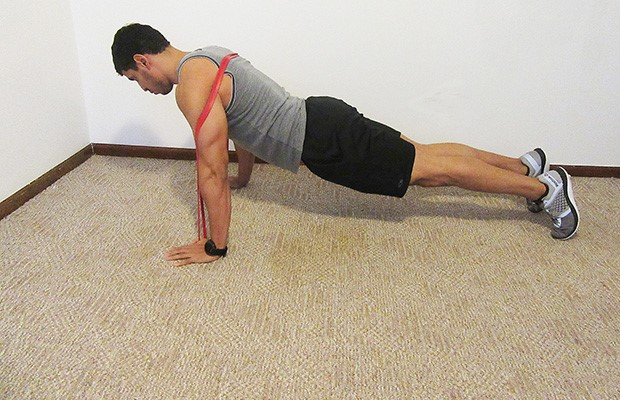I don't know what to do. I'm desperate. I do pushups regularly for almost three years but not only haven't I managed to reach some decent increase pace (I hope you understand what I mean by my clumsy English; "increase pace" sounds a bit off to my ear but I don't know how to say it otherwise), I also every so often see the number of my repetitions fall by 1, 2 or even 3 with no apparent reason at all. Last time I did this type of pushups (it was 4 days ago; two days ago I did wide pushups), I did 32 repetitions, the same as in late December (and last month I managed to do 33). Today, without any evident reason, I couldn't straighten my arms after just 30 pushups. In these three years, I tried everything I could think of:
I experimented with the number of days between similar exercises (initially, I did pushups every day, then every two days, then every four days, then every three days, now I got back to a four-day cycle, i.e. no pushups (abs+squats, instead) — regular pushups — no pushups (again, instead, abs+squats but different) — wide pushups, and then all over again);
I experimented with the number of sets (initially, it was just one set, then two sets, then two sets of one type and two sets of another type, then many low-rep sets, now I'm back at two sets of the same type);
as already mentioned, I experimented with different types of pushups (initially, it was just regular-width pushups, then I mixed in narrow/diamond pushups, then found out that diamond pushups target the same triceps so I replaced them with wide pushups that target pecs);
I don't eat fish; maybe, it has something to do with iodine deficiency, I thought? (I didn't google it, though) I started popping iodine pills, no difference;
every time the number of repetitions drops, I started to take three days off of any pushups (it's my most recent experiment); it, actually, proved somewhat effective: after such a break, the number of repetitions slightly increases (usually, by one); but guess what? I took a three-day no-pushup break just a few days ago (two days ago I did, as I said, wide pushups, two days before that, like today, I did regular pushups, three days straight ahead of that I did no pushups).
